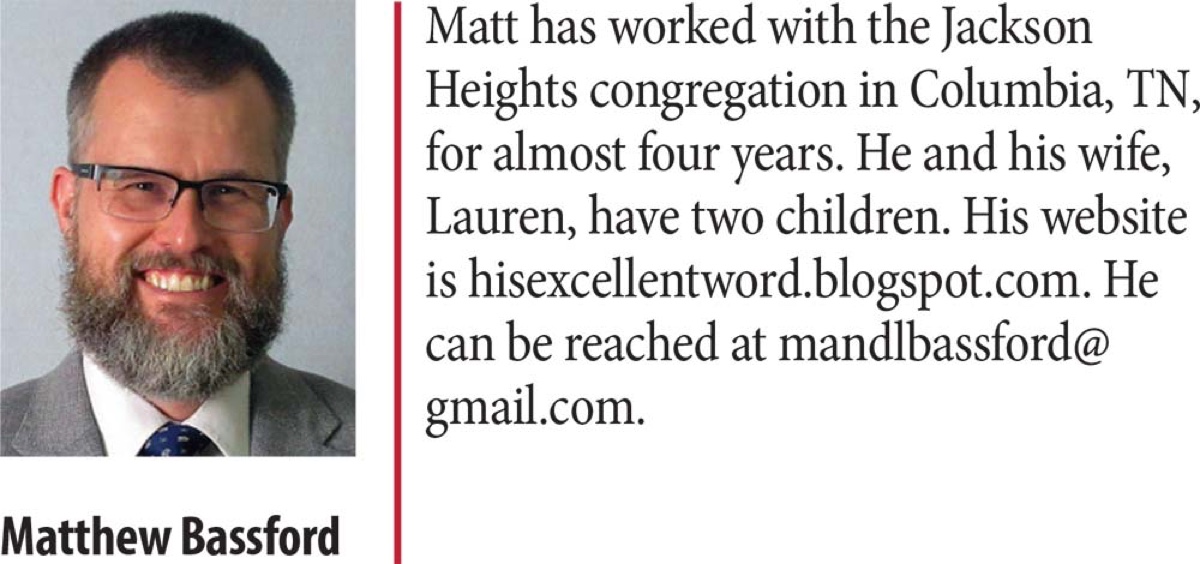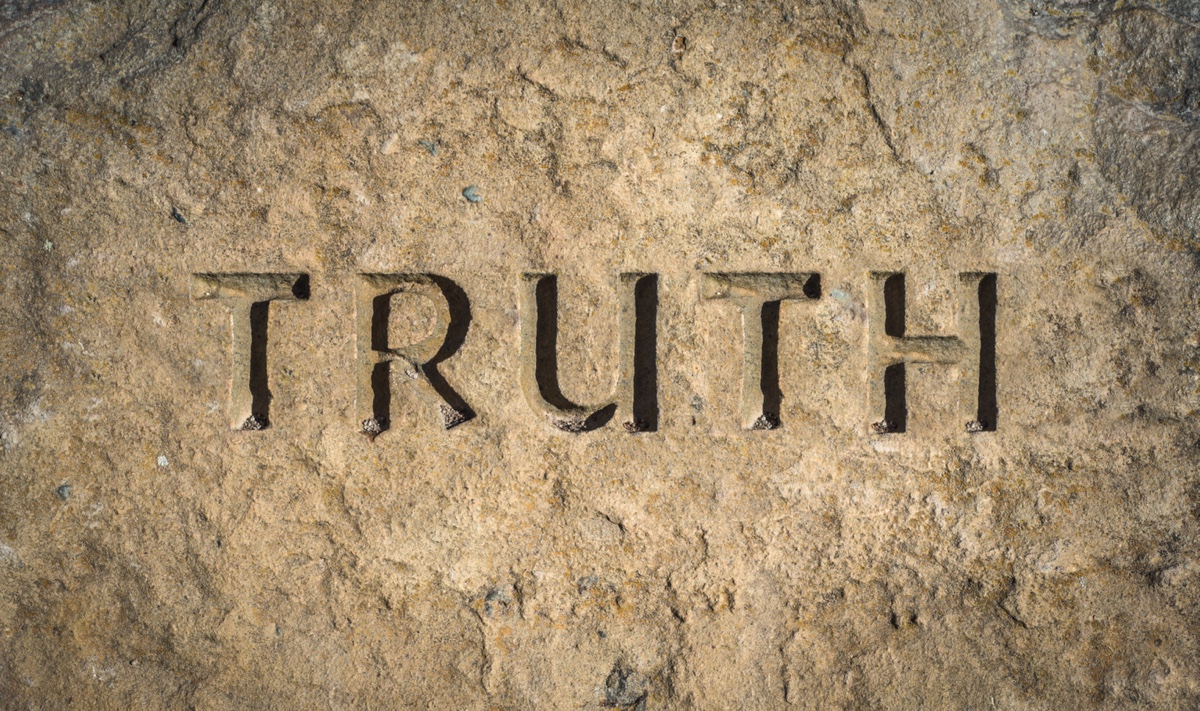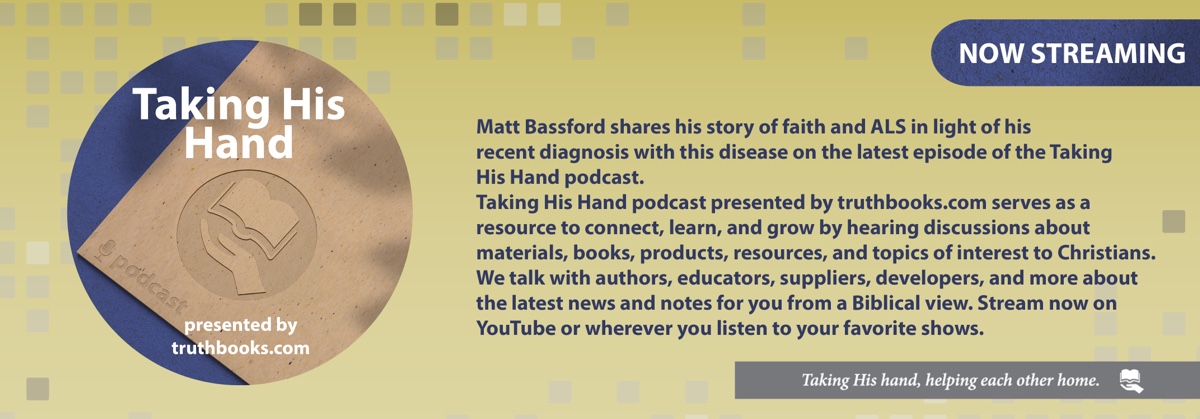
by Matthew Bassford
Synopsis: For faithful Christians, truth is foundational. We must know it, love it, live it, and speak it—in private conversation, in public proclamation, and in hymns of praise to God and edification of the saints.
To those who love the Lord, the importance of truth cannot be overstated. The truth sets us free. We are sanctified in the truth. Jesus described Himself as the way, the truth, and the life.
It is not surprising, then, that if there is anything brethren get right about song worship, it is the truth part. Ever since the Restoration, the churches of Christ have been vigilant against error in hymns. In many cases, Christian hymnal editors have correctly amended hymns with questionable wording and excluded those that could not be salvaged.
Consider, for instance, the Fanny J. Crosby hymn, “To God Be the Glory.” As originally written, it contained the couplet,
The vilest offender who truly believes That moment from Jesus a pardon receives.
Is this true? In Acts 2:37, the question posed by the devout Jews reveals that they have believed. If not, their earnest appeal to Peter (“What must we do?”) makes no sense. Only those who had accepted that God had made Jesus both Lord and Christ would feel the need to do anything.
Nonetheless, in the very next verse, Peter tells these newly minted believers they must repent and be baptized for the forgiveness of their sins. Whatever else happened in the moment they believed, they evidently did not receive a pardon from Jesus. We wouldn’t tolerate such teaching in our pulpits, and we shouldn’t (and didn’t) tolerate it in our hymns either!
However, apart from that one troubling couplet, “To God Be the Glory” is a great hymn. The tune is stirring; the content is edifying and encouraging. It’s an obvious candidate for a repair job. According to brotherhood hymn expert D. J. Bulls, the hymn got the fix it needed in Special Sacred Selections. One of the editors, most likely Ellis Crum, rewrote it to read,
The vilest offender who truly believes When buried with Jesus a pardon receives.
Not only does this follow the Acts 2 fact pattern (the Jews on the day of Pentecost were forgiven of their sins after baptism, not before), it also is an edit so deft as to be unnoticeable. I pay a fair amount of attention to hymn texts, but I didn’t know the alteration existed until I encountered the original online.
Even from a pure content perspective, “When buried with” is stronger than “That moment from.” The former connects with Romans 6:4, while the latter connects with nothing. The more Scripture a hymn contains, the richer and more truthful it is.
Sadly, the history of truth-based hymn critique in the brotherhood has its share of blemishes. It is possible for editors, elders, song leaders, and even ordinary Christians to be so zealous in their “defense” of truth that they unnecessarily edit or exclude valuable hymns.
We see an example of such misdirected zeal in the Sacred Selections alteration of Robert Lowry’s “Christ Arose.” The chorus contains the line,
And He lives forever with His saints to reign.
There are smoother lines in the hymnal (Lowry was better as a composer than as a lyricist), but it certainly is truthful. As per 2 Timothy 2:12, we will reign with Jesus. While I don’t know exactly how the faithful will “reign with Him,” I know it will happen!
However, this unobjectionable lyric attracted the baleful eye of Ellis Crum. Brother Crum edited his hymnal with a heavy hand, particularly when it came to premillennialism. Some of the hymns needed emendation (if you’re going to include “Jesus Is Coming Soon” at all, you can’t include the line about seeing signs come to pass), but many did not. “Christ Arose” didn’t need alteration, but he altered it anyway, presumably because he was suspicious of any line that referred to the reign of Jesus in the future. The Sacred Selections version reads,
And He lives forever; death He overcame!
There are several problems here. It’s even more awkward than Lowry’s original, it introduces a pause in thought where there is no pause in the music (which makes the hymn harder to understand), and it replaces Lowry’s perfect rhyme (domain/reign) with an imperfect rhyme (domain/overcame). Bro. Crum made the hymn worse, and he did so unnecessarily.
All of this interests hymn geeks, no doubt, but it also holds a lesson for every one of us. Sometimes Christians appoint themselves hymn censors and approach our repertoire asking, “Can I find false doctrine in these hymns?” Often, the answer for those so inclined is “Yes.” Most of our hymns were written by authors who belonged to denominations. If we are eager to read denominational teaching into their work, we surely will find an opportunity.
However, this is not the most useful way to evaluate our song worship. If we go through deleting every hymn that could be understood wrongly, we also will destroy every hymn with content. Just look at the way people misunderstand the Bible! How could the work of a mere human survive such scrutiny?
Only hymns like “I’m Happy Today” will remain. Nobody thinks it teaches false doctrine, but it also doesn’t do much teaching at all, at least for anybody over the age of ten. When Scriptural ignorance is so rife among Christians, this isn’t the direction we need to be headed.
We should ask instead, “Can I sing this hymn with understanding and in good conscience?” When we do this, we are fulfilling the requirements of Scripture, and God is pleased. Is there any need for further inquiry?
This approach permits the rehabilitation of many great hymns. For example, I am reasonably sure that the last couplet of the fourth verse of “The Solid Rock” (“Dressed in His righteousness alone/Faultless to stand before the throne.”) was written to teach the Calvinist doctrine of imputed righteousness. However, that’s not the way I have to read it, and I don’t.
Instead, when I sing it, I have in mind the teaching of Galatians 3:27. Only because I have been clothed with Christ in baptism can I hope to be found righteous on the day of judgment. I don’t want God to consider my own personal righteousness at all! Because I can sing the couplet, I can sing the hymn, and the hymn is well worth singing.
Of course, the amount of truth in a hymn is meaningless unless it finds truth in our hearts. Biblical truth isn’t merely something we recognize externally. Rather, it’s something we must absorb internally. According to 2 Thessalonians 2:10, unless we have received the love of the truth, we cannot be saved, and that love must be evident in our worship.
We should love hymns that are filled with the truth. Nothing is more satisfying to a Christian who cherishes the Bible than singing a hymn that is scripturally rich! We must have enough integrity to take what we sing and make it our own. God is the God of truth, not the God of our imaginations. His revelation must guide our conduct, not our think-so’s. This same truth is the truth that we must strive to impart to others, singing to teach and admonish, not by rote.
This is our task, but in order to succeed, we must have fitting tools. Hymns that clearly teach false doctrine don’t help, but neither does applying a scorched-earth strategy to our repertoire. If our zeal for truth results in our singing hymns without content, the result only can be described as bitterly ironic!
However, we can avoid this dire outcome by starting with the Scriptures. Hymnists and editors should be Scripture-centric, and so too should be church leaders and individual worshipers. Too often, hymn critics reveal not their grasp of Scripture but their ignorance. Only when we know what we should be singing can we be sure that we’re singing the right thing. 


